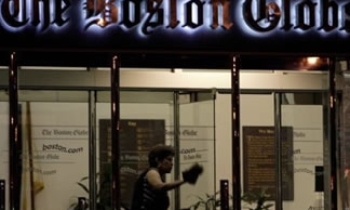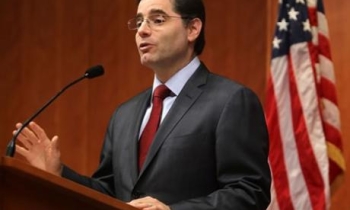An appeals court in Canada has overturned a lower court's 2004 contempt ruling against a journalist who would not reveal his source.
In the ruling issued Monday in Toronto, the three-judge panel of the Ontario Court of Appeal ruled that the Charter of Rights and Freedoms applies to journalist-informant confidentiality and, as a result, the contempt charge and fine against Hamilton Spectator reporter Ken Peters should be set aside, according to CBC News.
In 2004, Peters refused to provide information that could identify a confidential source during a civil trial that stemmed from a series of articles he wrote. Peters, acording to the Canadian Journalists for Free Expression (CJFE), was fined $31,600 to compensate the parties to the lawsuit for the legal bills run up for the delay caused by his refusal to reveal the source.
The conflict arose from a story that Peters worked on almost a decade ago. In 1995, Peters received documents about problems at a Hamilton nursing home. Allegations made against the nursing home subsequently prompted its operators to file a lawsuit against the City of Hamilton and Halton Region.
The CBC News report went on:
The Court of Appeal ruled that courts should do their best to obtain evidence from other sources before compelling a journalist to reveal a source. The ruling said that due to the freedom-of-speech rights in the Charter of Rights and Freedoms "every effort should be made to minimize the impact upon those rights and values." The ruling also found that the charge of contempt was premature.
"I agree with the appellant's submission that even after it has been determined that the rights of the litigants trump a journalist's claim of confidentiality, it is a mistake to cite the journalist for contempt immediately," the ruling read, adding that contempt power is to be used cautiously and only as a last resort.
"The court should first explore other means of proceeding that would be less intrusive to the journalist-informant relationship of confidentiality." The ruling also said the judges "can see no justification" for having continued with contempt proceedings after the confidential source had been revealed.
The Globe and Mail had some other details:
The ruling was a blow to several news media organisations—including The Globe and Mail—which had argued that handing over the document would put a chill into the relationship between journalists and their sources, regardless of whether the material in the Post case was a forgery, as the Prime Minister's Office and the Business Development Bank of Canada had asserted.
The appeal decision overturned a 2004 decision by Madam Justice Mary Lou Benotto of the Ontario Superior Court. Citing press freedom and the paucity of evidence that police stood to gain, she prevented investigators from seizing the document and the envelope used to mail it to Post reporter Andrew McIntosh.
Purportedly issued by the Business Development Bank, the document indicated that Mr. Chrétien had improperly used his influence to aid a hotel located next to the Grand-Mère Golf Club, in which he owned an interest. Post lawyers Marlys Edwardh and John Norris emphasised in interviews that McIntosh has never believed that the document was a forgery.









